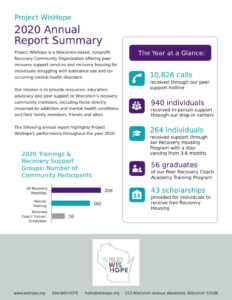A funny thing happens in long-term recovery: the all-consuming pain of our darkest moments takes on an unexpected tint of illogical. Maybe it’s the nostalgic framing of nearly every memory. Maybe it’s our own impossibly limited inability to estimate the course of the future. Maybe it’s a defense mechanism. Long-term alumni might break into inexplicable laughter describing their absolute rock bottoms. Why?
As is the case with many aspects of addiction, the causes and presence of recovery’s dark sense of humor vary from person to person. For some, self-deprecation acts as a self-defense mechanism, creating distance between a present individual and their past behavior. Others seem to “unlock” a newfound levity surrounding some of life’s most traumatic points through intentional efforts towards growth. Only after spending time on personal empowerment and independent relationships do individuals realize how differently they feel after a relatively short period of recovery.
Many will never feel comfortable making light of their struggles through addiction. Naturally, finding a way to laugh at one’s rock-bottom is on par with finding a silver lining in a car crash—such a response defies conventional logic. The underlying fibers of addiction exist untethered to rationality. Finding oneself with an alumnus who self-soothes with dark humor can present several social anxieties as well. Is it appropriate to laugh, or is that reserved for those who truly identify? Wading through recovery bogs us down with a sea of feelings and emotions to sort through. A sense of humor for recovery helps lighten the load for some. Meanwhile, others feel too burdened by the gravity of alcohol or substance use disorder to affect any positive growth from laughing through sobriety.
SURPRISED TO FIND YOURSELF LAUGHING? THAT’S OKAY
In the early stages of recovery, even so much as cracking the seal to reflect on painful memories can result in an outpouring of shame or utter indifference. Alumni well into recovery might reflect on some of their codependent and self-sabotaging habits and manufacture a disbelieving chuckle. Many reflect on their growth with a near-dissociative distance from the person who hit rock-bottom however long ago.
“Self-deprecation” only partially describes this type of humor which almost feels like a different version of the “self” is the subject of deprecation. Given the perspective necessary to find anything funny about addiction’s challenges, not everyone will get to this place of comfortability with their recovery—that is perfectly valid. Those who do get to that place might initially be surprised looking back on past pains to find a nugget of hilarity—this is also valid.
Being able to laugh at the precarious decisions and habits sunk deep into the past of our days pre-recovery expresses the relief of letting those habits go. Common reflections often sound like, “The way I let people treat me before recovery is unthinkable now,” or “The behavior I found acceptable in the past is laughable.” The levity found in allowing humor into personal shadings of the past creates space to release negative self-judgments while retaining personal intimacy. To laugh at oneself is to know oneself. The performer who takes the stage fixated on their last misstep is more likely to make another mistake. Some may find the ability to laugh at oneself freeing in the pursuit of sustaining their recovery.
IF YOU DON’T FEEL LIKE LAUGHING TODAY
Allow your recovery the space to be complex. The expectations of one’s own identity resemble a square peg incongruous with the round hole of true identity—and more likely than not, this true identity mapped out more closely resembles complex icosahedrons, confounding attempts to self-realize. Recognizing how little is understood about one’s thoughts and behaviors is, ironically, a step towards understanding oneself.
There will be days in which recovery invites individuals with alcohol or substance use disorder along with frictionless bliss, and then there will be days brimming with Sisyphean resistance. Opening up the expectation of life in recovery to account for a spectrum of feelings and emotions challenges common conceptions of what we should be doing to align with what works for us more closely. This picture of recovery can include the acceptance of personal identity without sacrificing aspects of unique character traits, like crying, laughing, and everything in between.
Your recovery today may not resemble tomorrow’s recovery or yesterday’s either. Widening the approach of sobriety to include laughter without expecting it changes how individuals emote through the hardships of addiction while staying human.
Finding the space to forgive your past self often feels like charging headfirst into a solid, locked door. Finding humor in the “What on Earth was I thinking?” line of self-questioning cracks that threshold open just enough to see the light of day. A sarcastic, self-deprecating, or dark sense of humor might not be for everyone in recovery, which is entirely valid. But throughout recovery, it is important to stay open to the possibility that these tastes and mechanisms for personal healing may change. It is about taking recovery one day, one hour, and one moment at a time. Sometimes laughing alleviates the anxiety of what might happen once this moment ends. At WisHope, we understand that recovery comes equipped with inherent risk. We offer various resources to manage that risk through a tailored recovery program, which impacts coping individuals during treatment and long after receiving outpatient care. Don’t wait to get help—call us today at (844) 947-4673.


